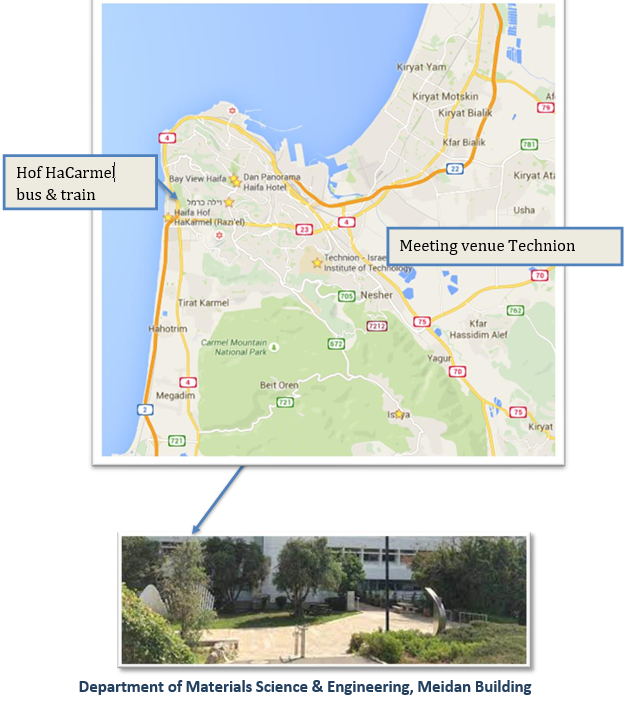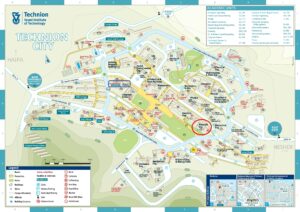Download the technion map (high resolution)
Haifa
Haifa is the largest city in northern Israel and the 3rd largest city in the country, with population of about 285,000. Together with towns directly adjacent to the city it form a contiguous urban area home to nearly 600,000 residents which makes up the inner core of the Haifa metropolitan area.
The region of Haifa was inhabited since the Late Bronze Age. Over the decades it has been controlled by several civilizations, among them the Canaanites, Israelites, Romans,Byzantines, Crusades, Arabs, the Ottoman Turk. Since the establishment of the State of Israel in 1948, the city has been governed by the Haifa Municipality.


Today, Haifa is a mixed city of Jews and Arab citizens of Israel, Muslims and Christians. Built on the slopes of Mount Carmel and on a broad, natural bay on the Mediterranean Sea the city’s terraced landscape offers a rich variety of breath-taking panoramas.
The city is divided into several centers according to its topography and historic development. The “lower city” near the port, includes private residences and commercial establishments together with an administrative area and “Rambam Medical Centre”. “The bay area” is devoted to industry.” Hadar HaCarmel” on the slopes of Mount Carmel is the shopping and cultural area, and the fourth centre is “Carmel Centre”, mainly a residential area on the top of Mt. Carmel. There are two academic centers in Haifa, the Technion and the University of Haifa.

Haifa plays an important role in Israel’s economy. Located on Israel’s Mediterranean Coastline the city has a major seaport in the Bay of Haifa. “The Bay area” is a centre of heavy industry. “Matam”, one of the largest high-tech parks in the country is based in the south entrance to Haifa. It houses many Israeli and international companies including R&D international centres of Yahoo, Google and Microsoft.
Haifa is also home to the Bahá’í World Centre, the spiritual and administrative centre of the Bahá’í Faith and a destination for Baha’i pilgrims. The Bahá’í Gardens also known as the Hanging Gardens of Haifa are garden terraces around the Shrine of the Bab on the north slope of Mount Carmel. The center is a UNESCO World Heritage Site.
Technion – Israel Institute of Technology
The Technion-Israel Institute of Technology is Israel’s primary technological university, with about 14,000 students and the country’s largest center of basic and applied research. It is ranked among the leading technological universities in the world. The Technion has earned three Nobel prizes and has a worldwide reputation for its pioneering work in electronics, information technology, aerospace technologies, nano(bio)technology, materials engineering, etc.
The Technion was conceived in the early 1900s by the German-Jewish fund Ezrah as a school of engineering and sciences. Its cornerstone was laid in 1912, and studies began 12 years later in 1924. The Technion was the venue for Israel’s “battle of the languages,” an intense debate over the language of instruction.

In 1923 Albert Einstein visited and planted the now-famous first palm tree, as an initiative of Nobel tradition, in front of the old Technion building in the Hadar HaCarmel neighborhood. This building served as the Technion main building until 1965, when the new campus was built.
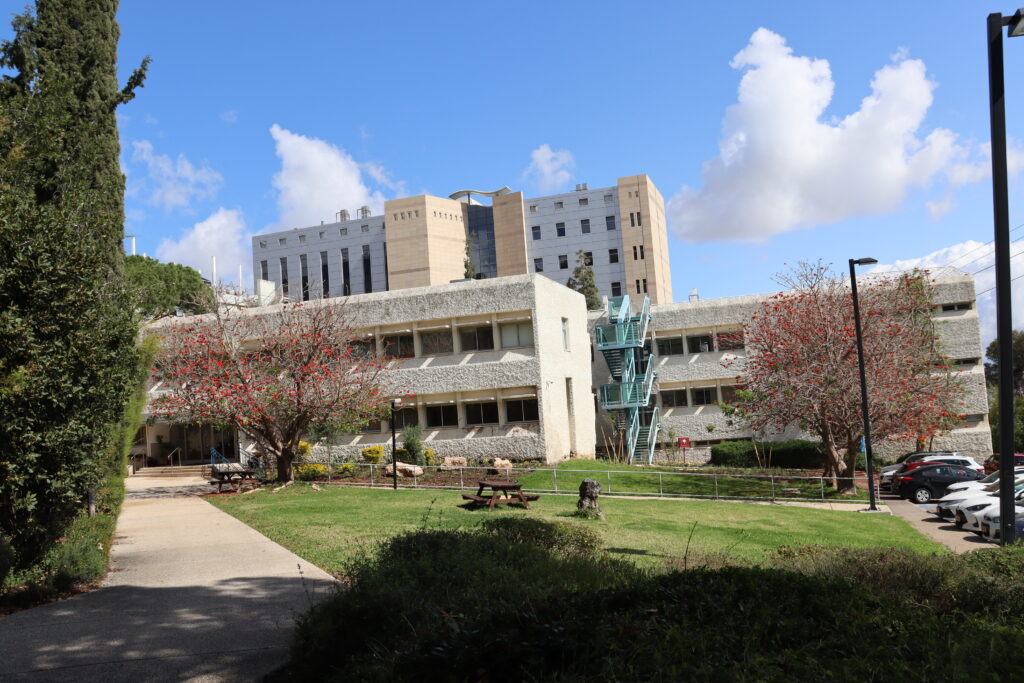
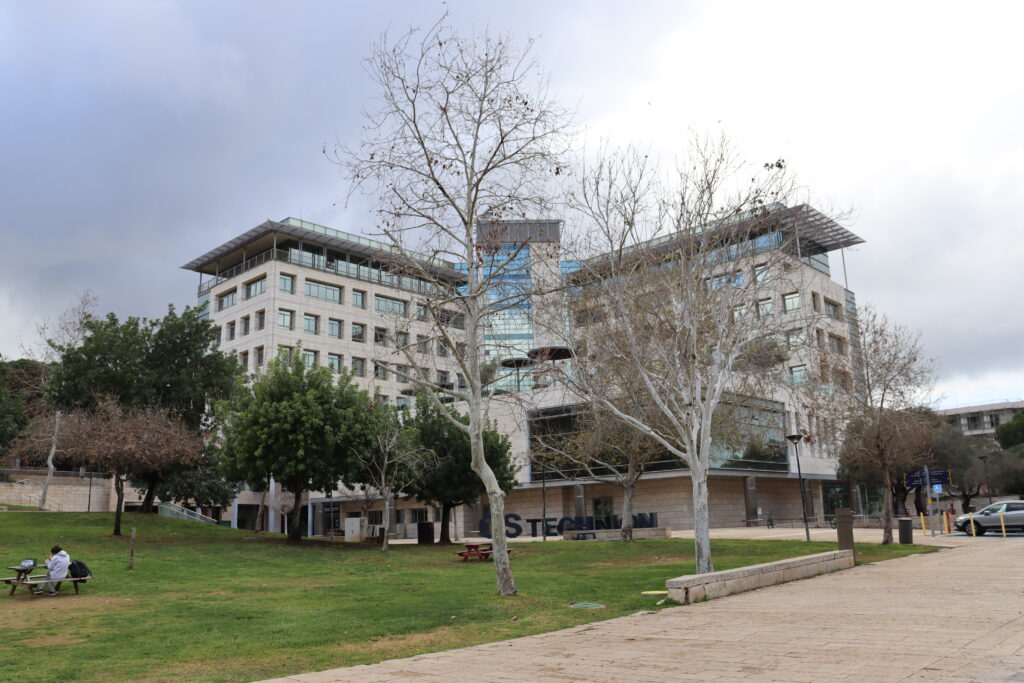
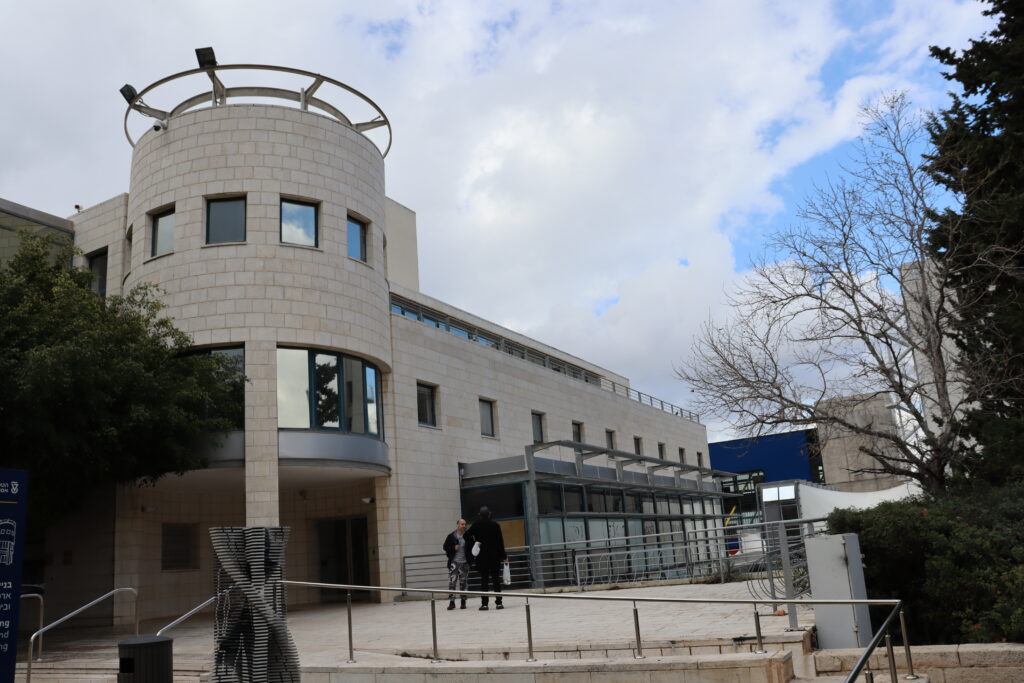
The Department of Materials Science & Engineering
The mission of the Department of Materials Science & Engineering is to serve as the national center of teaching and research in materials science and engineering, by educating world class scientists and engineers and conducting cutting edge research in specific fields of materials science and engineering.
The Department of Materials Science & Engineering provides a broad graduate program for M.Sc., M.E. and Ph.D. degrees in Materials Engineering. Through the combination of course work and advanced research activities the graduate students are provided with a deeper understanding and expertise in selected topics in materials science and engineering. Graduate studies are open to students with a B.Sc. degree from various departments at the Technion and from other universities in Israel and abroad. In the latter case high GRE scores are required (all graduate courses are available in English). Graduate students are classified into two groups: internal students fully supported by stipends; and external students who are concurrently employed in industry. Scholarships and dormitories are available for internal students through the School of Graduate Studies.
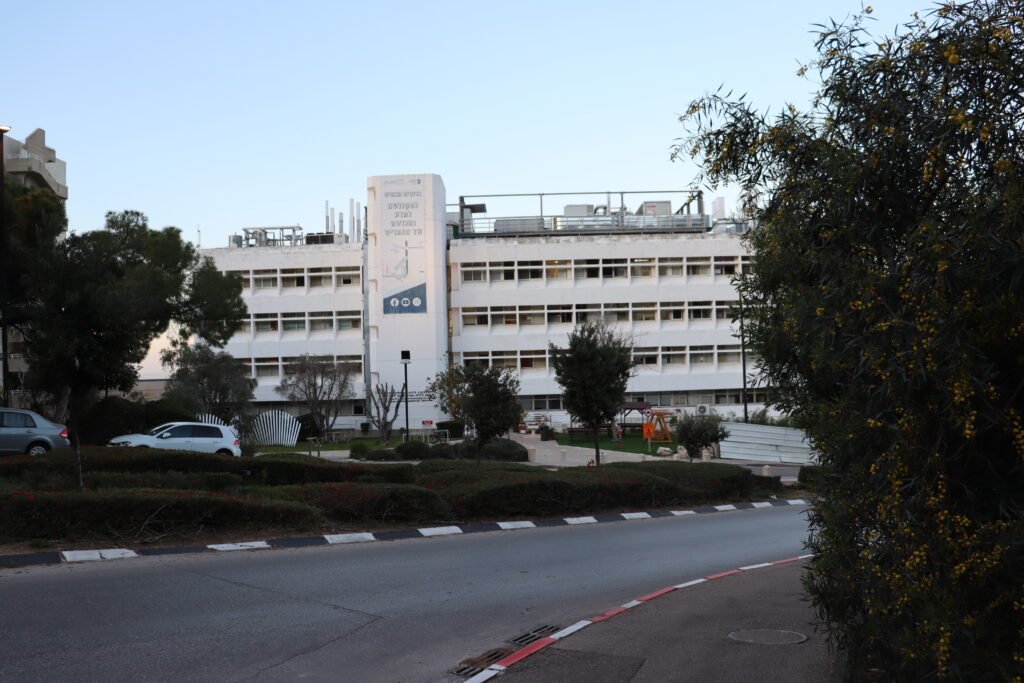
The research activities of the department cover most of the important and advanced topics in materials science and engineering. Details can be seen in the personal pages and research-group sites of the faculty members. The department includes a broad range of research centers and laboratories for the processing and characterization of materials, that are equipped with a wide range of advanced facilities and are supported by experienced staff. For more information: https://materials.technion.ac.il/en/faculty/about/
Travel Information
Arrival to Israel
All flights arrive at “Ben Gurion International Airport” near Tel Aviv. Arrivals are always at Terminal 3, as most of the departures. In some of the low-cost flights for departures, you need to check-in in Terminal 1.
Arrival to Haifa
The easiest and fastest way to reach Haifa from the airport is by train. A train ride to Haifa will take about 1.5 hours and will cost about 27 ILS one-way (about 7 Euro).
The train between the airport and Haifa works from 04:50 until 23:50 on Sunday- Thursday. Please note that on Friday the train works only half day and on Saturday there aren’t any trains. For more info and schedule please see here: https://www.rail.co.il/
If you arrive in different hours or have any question regarding arrival to Haifa, contact us directly by mail: smadaram@technion.ac.il
Please note that this ride is eligible for reimbursement as “long distance travel” since it is more than 101 km long. To be reimbursed for this travel, please make sure you have the train ticket showing price+ date+ origin/destination. The train ticket can be bought at the Airport train station (cashier or machine).
Internal transport in Haifa
In Haifa there are several Public Transportation services. The main Bus service company is Egged, every trip cost 5.5 Shekels.
In all buses payment is made with a travel card named “RavKav” or through several apps. You can buy the “RavKav” card at the airport (you will need the “anonymous card” which cost about 5 ILS) and upload to it the sum for your use (You can consult this site: https://visit.tel-aviv.gov.il/move/israels-travel-guide ).
Another option is to use the Moovit App to plan the journey and to pay for it: https://moovitapp.com/index/en/public_transit-Israel-1
Local currency – The local currency in Israel is Shekel (ILS / NIS). 1 Shekel is about
0.25 Euro.
Conference Venue
The conference will take place at the Department of Materials Science & Engineering, Meidan Building, in the big auditorium.
Wishing you a safe and pleasant journey !
